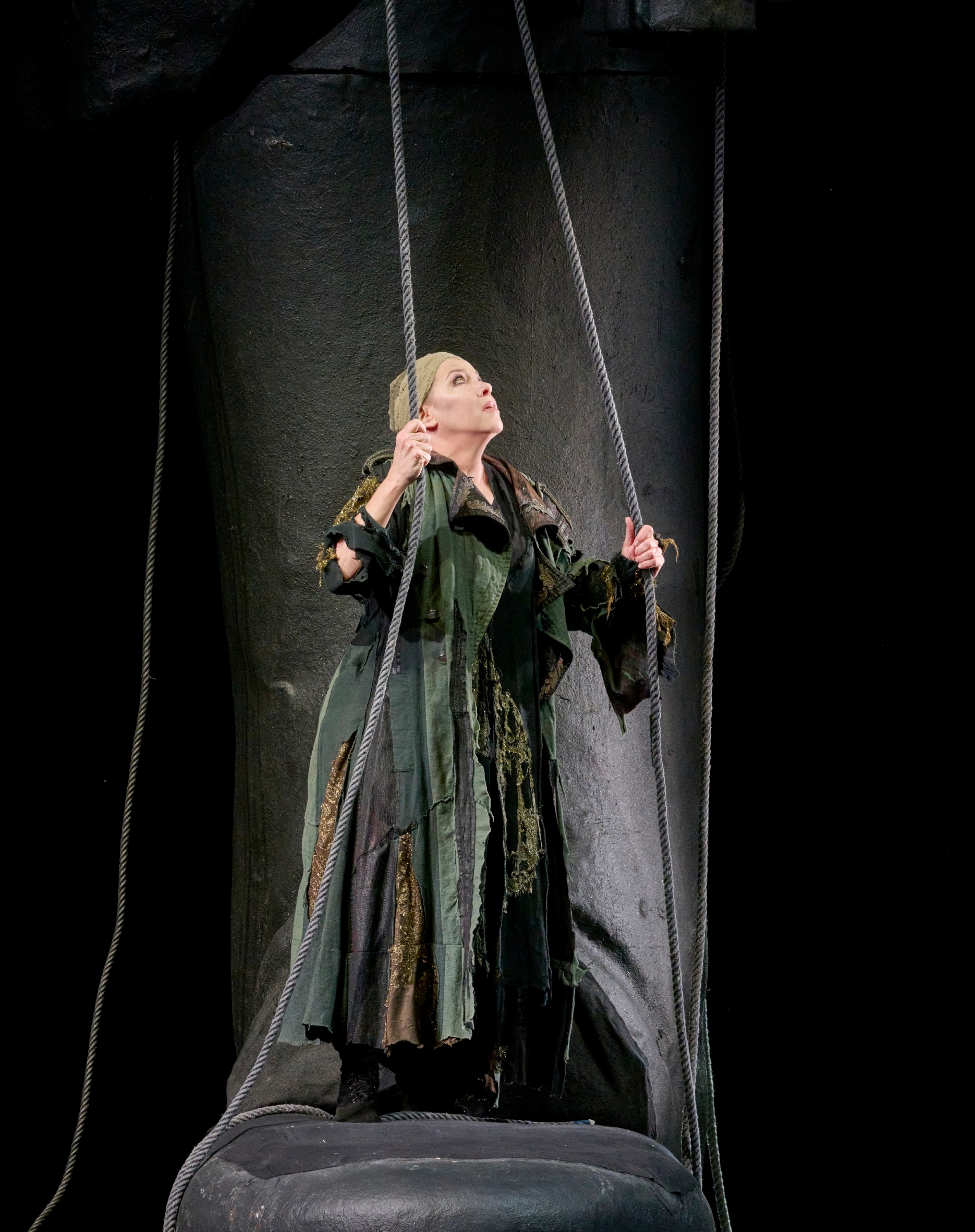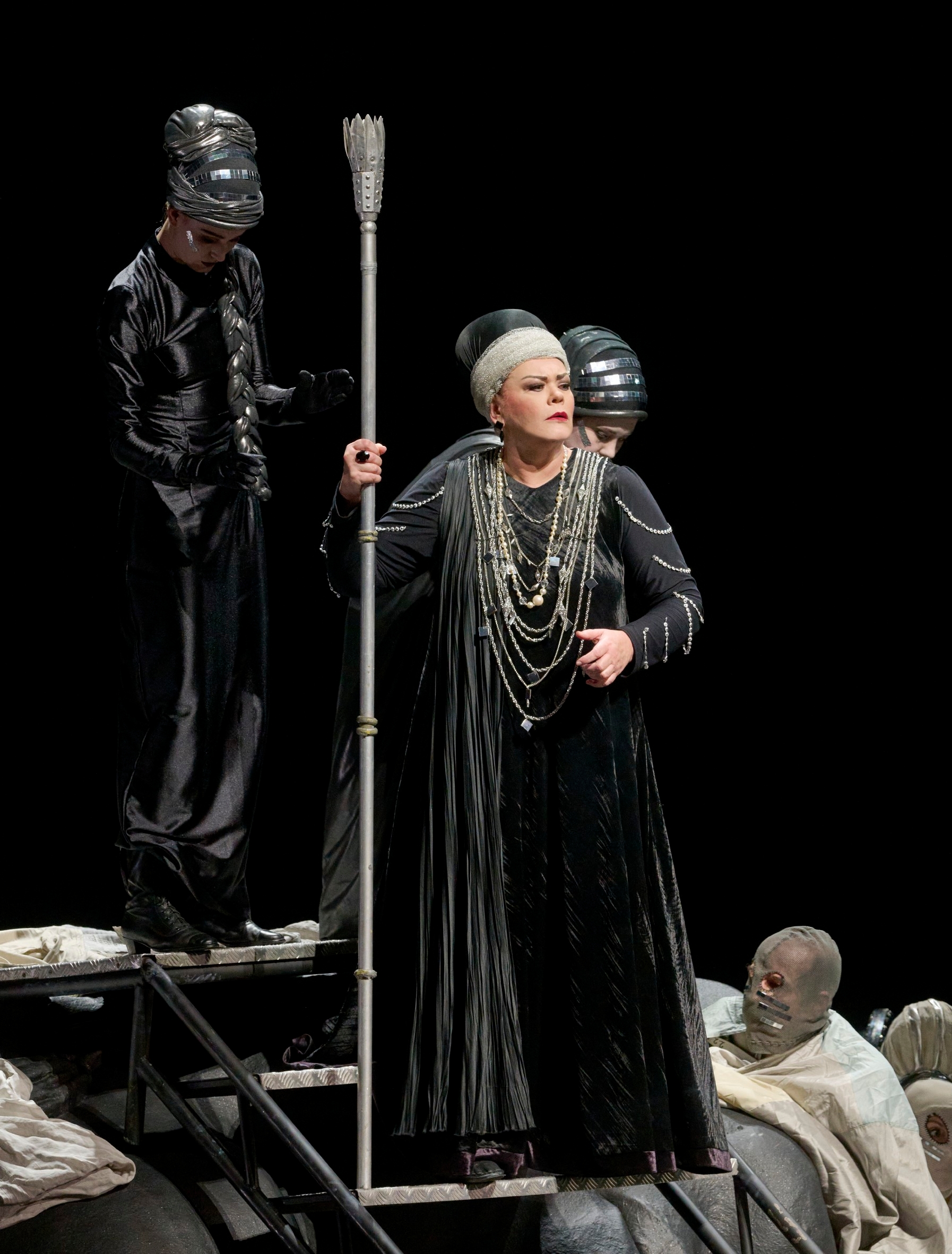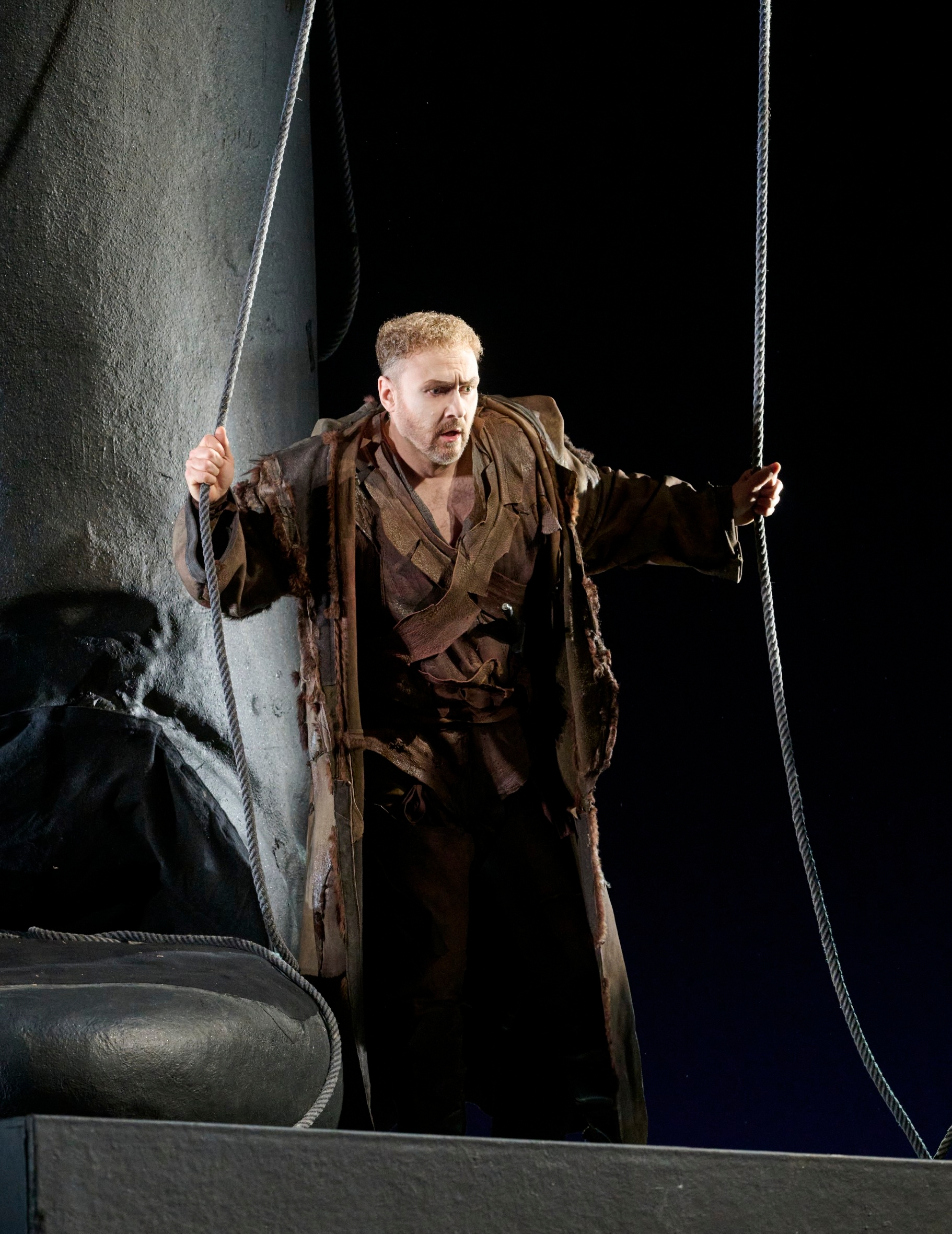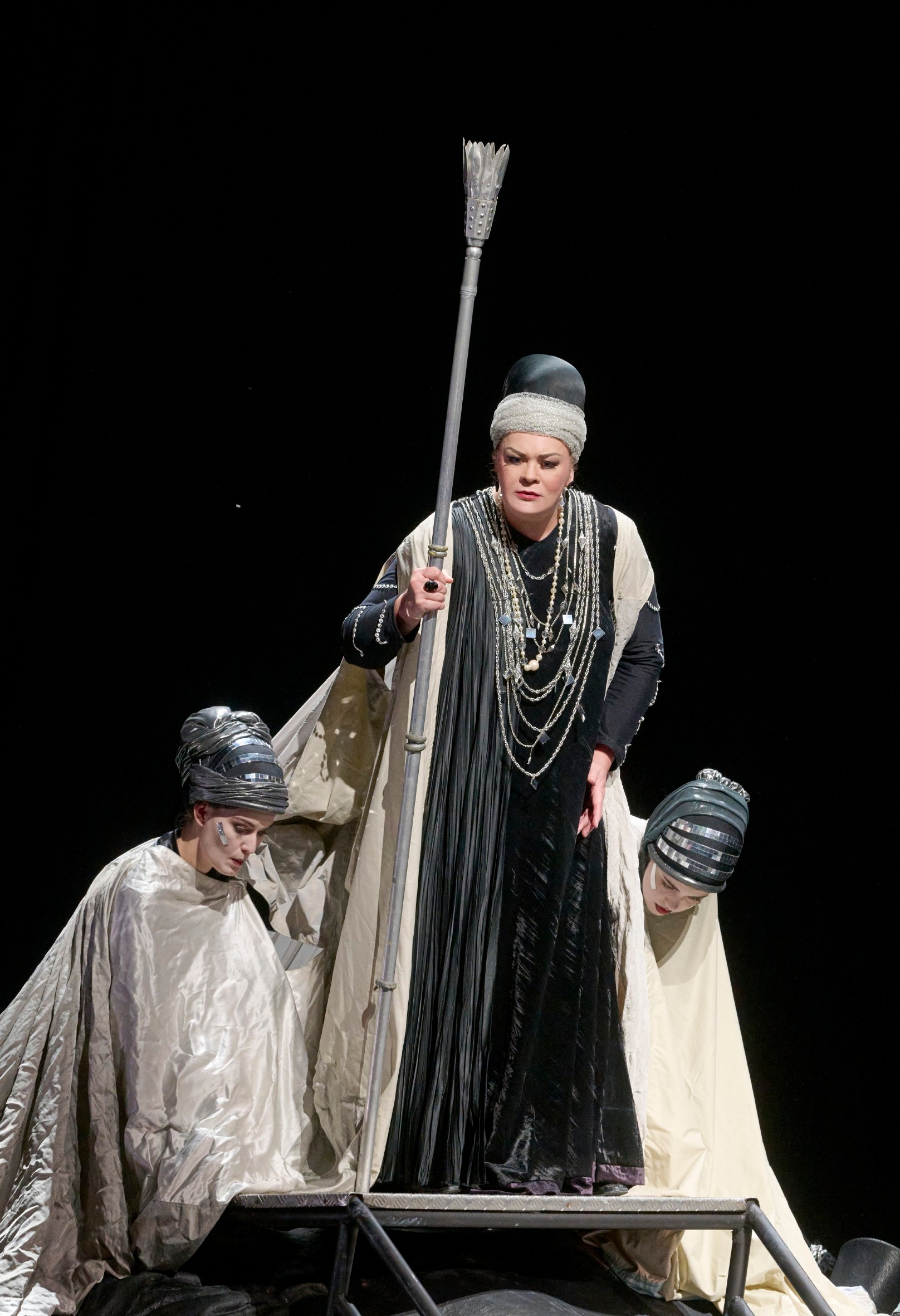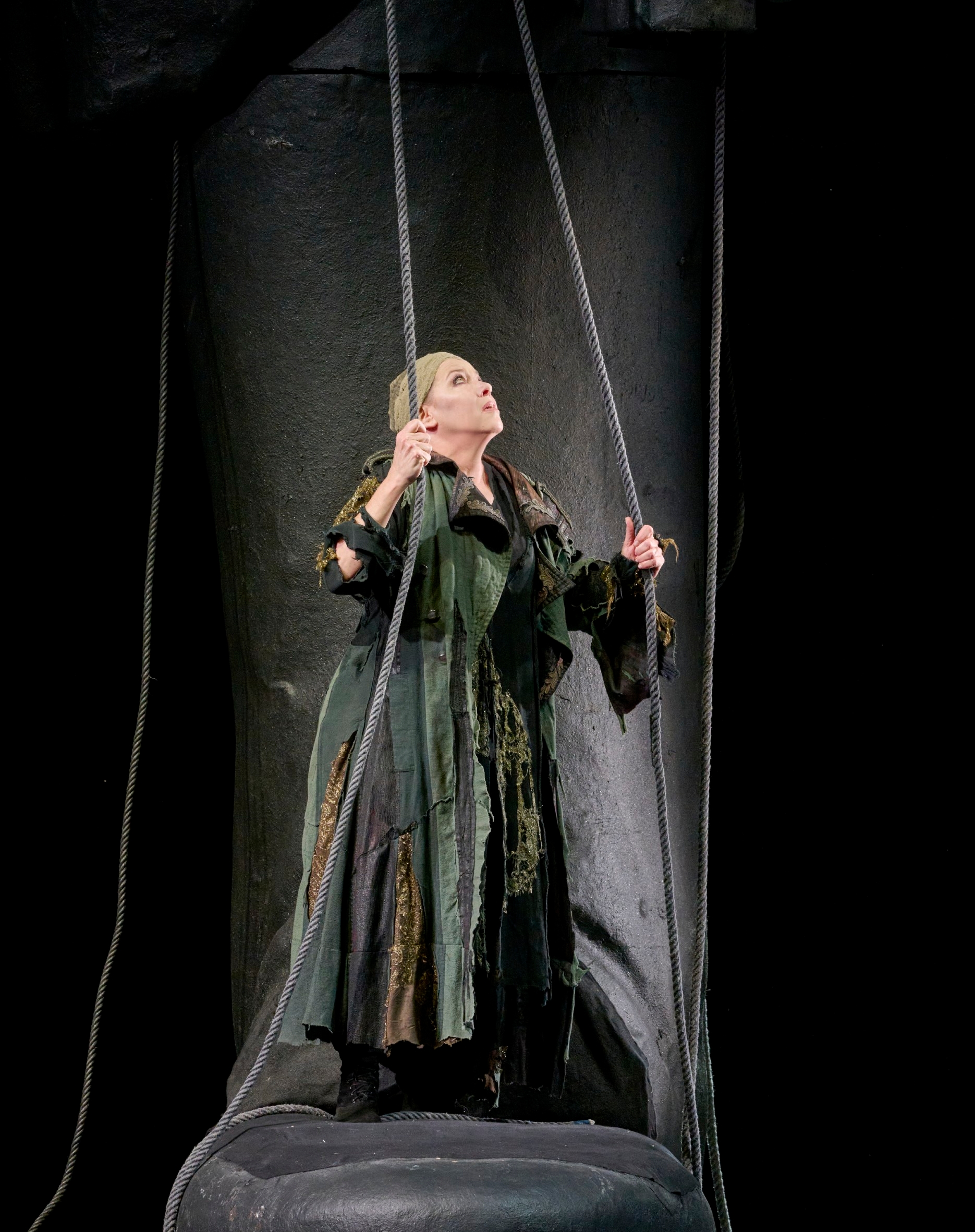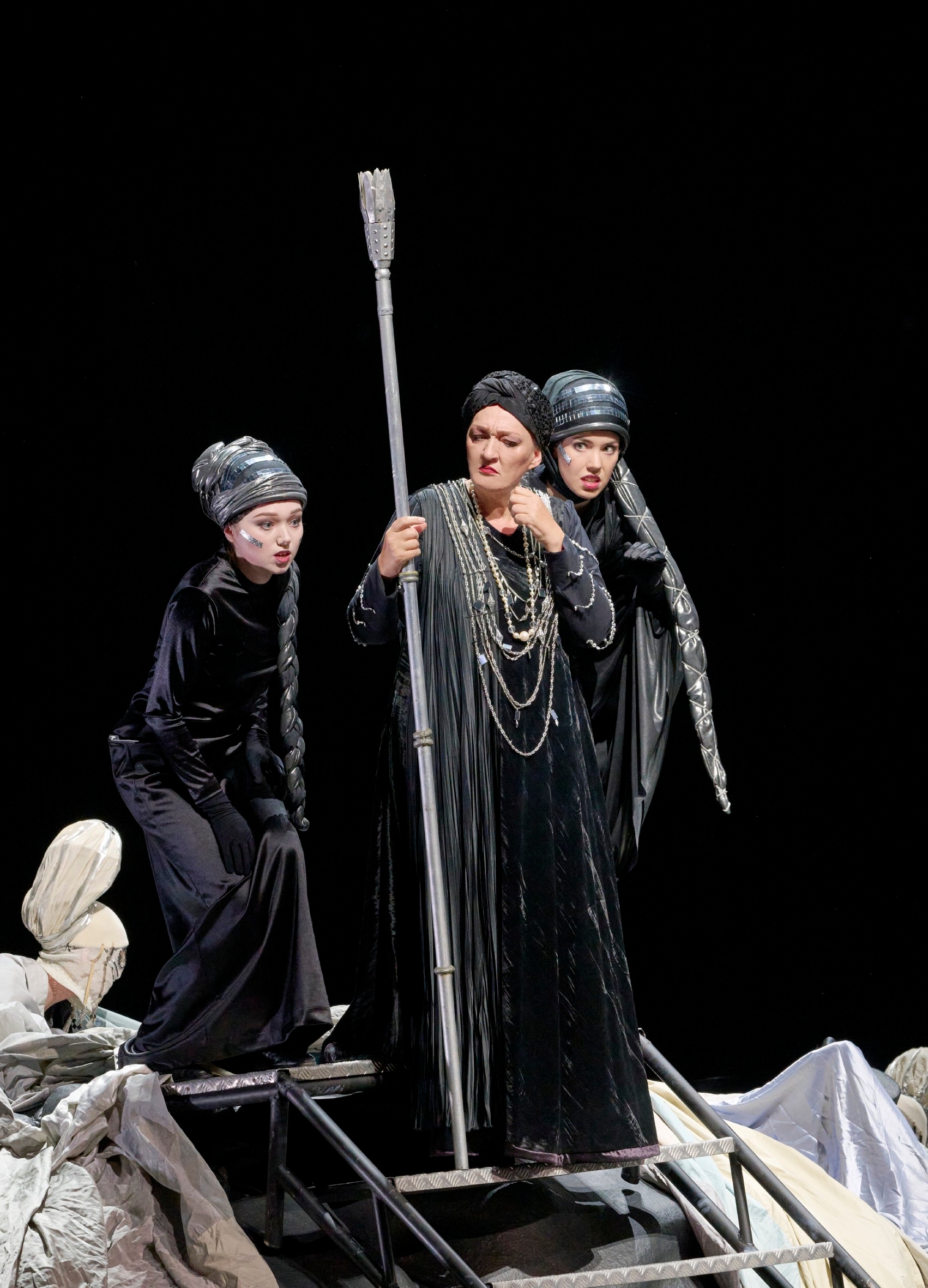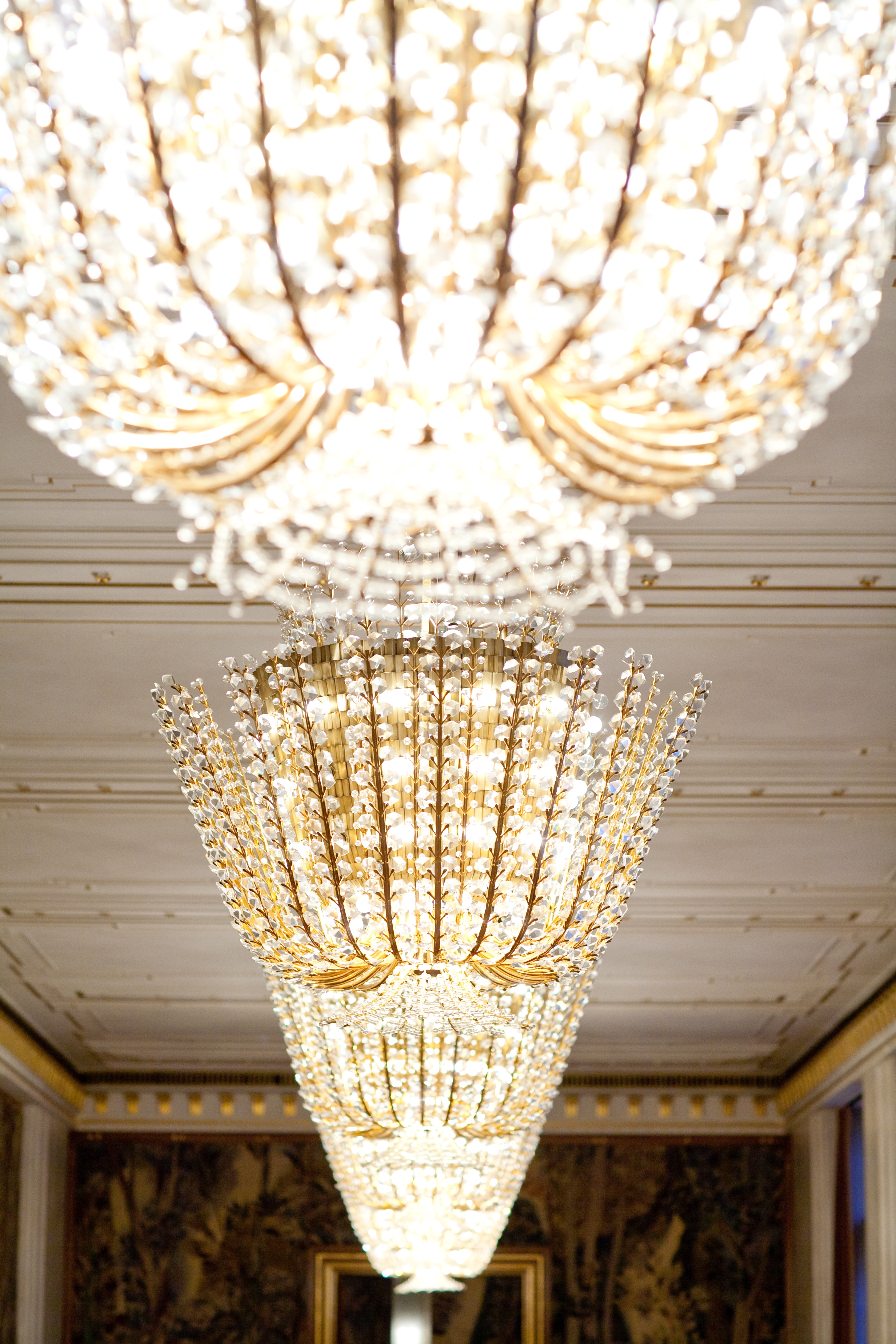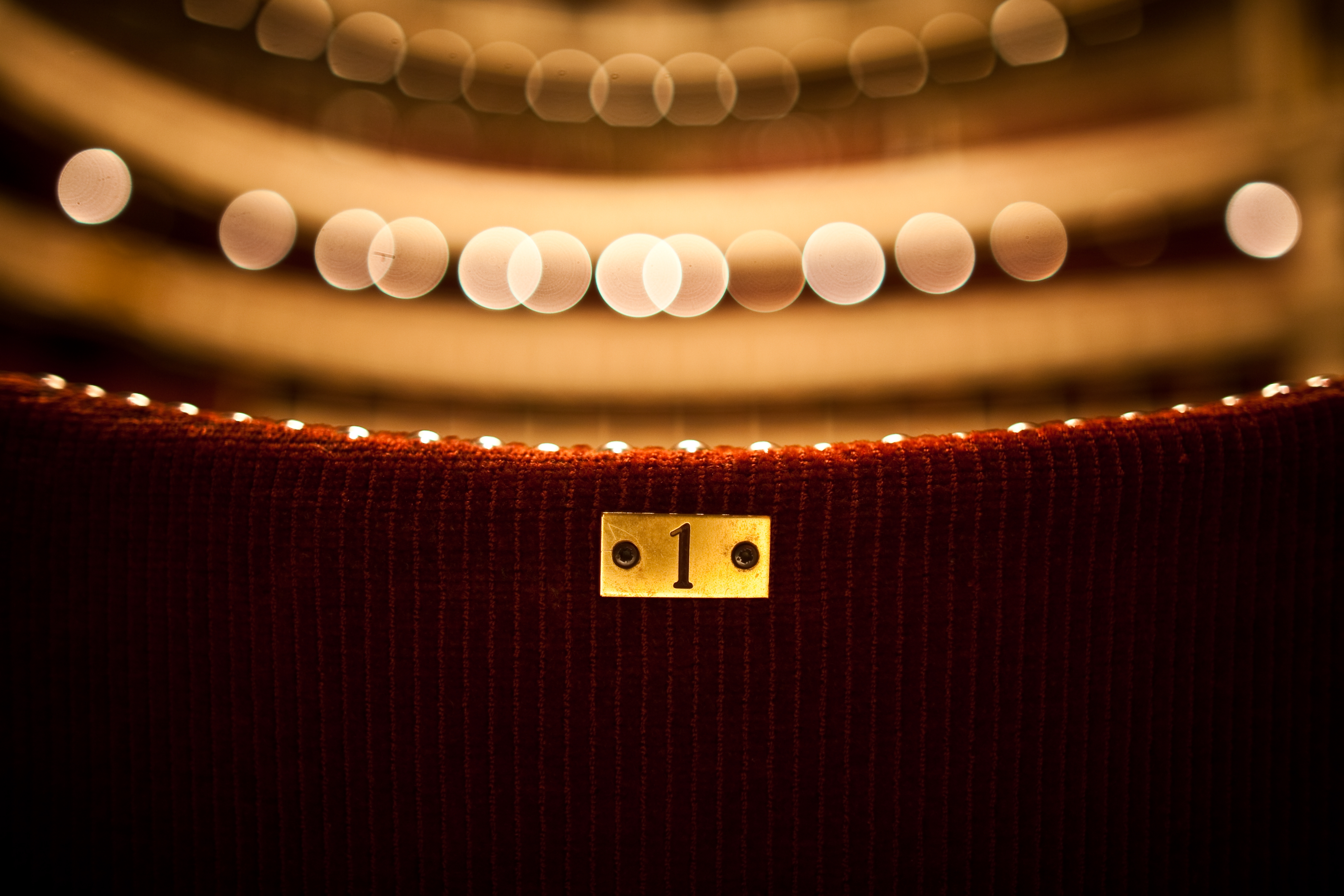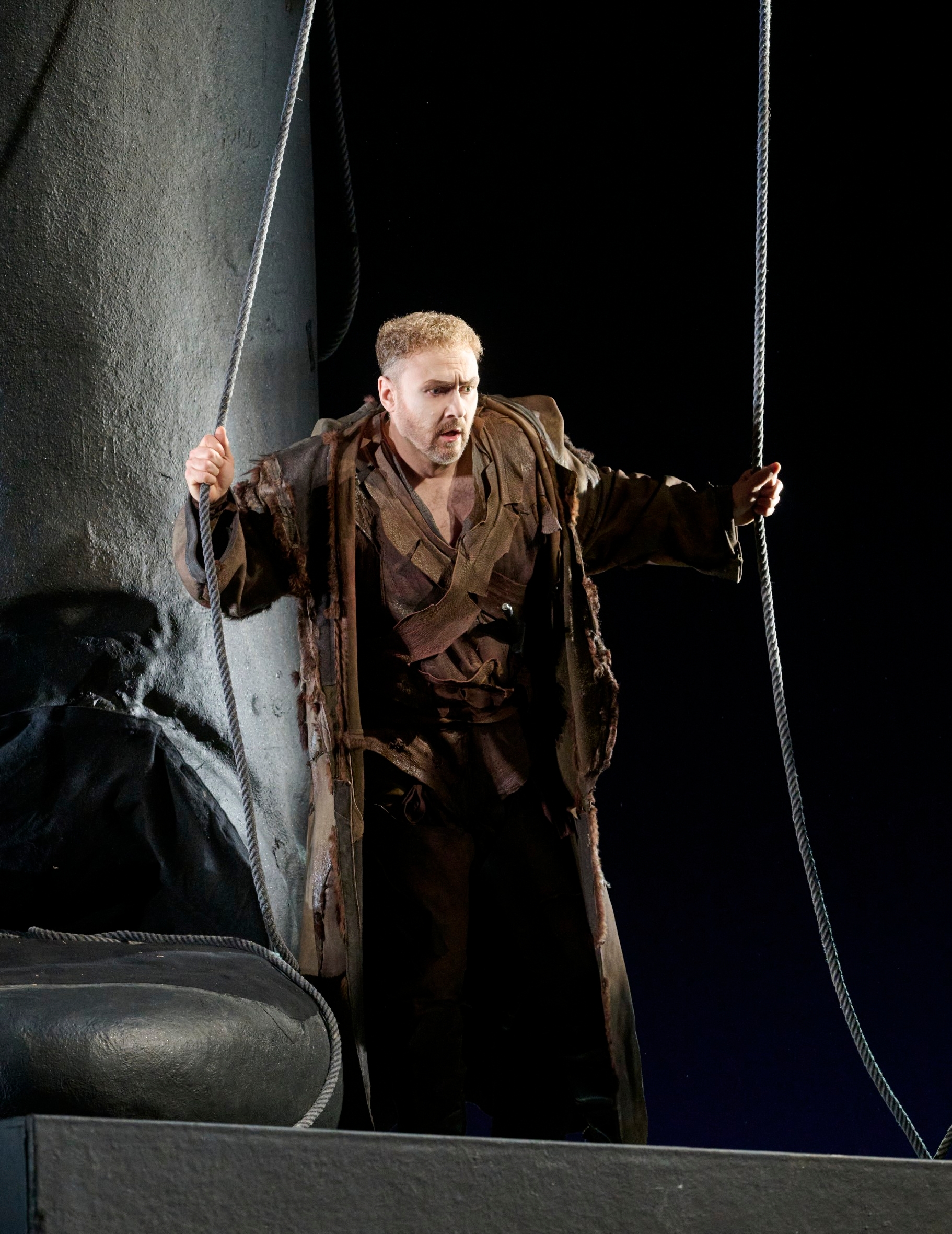
Short Summary
Electra, who is lonely inside and out, has renounced the world and is only seeking revenge:
Her mother Clytemnestra and her lover Aegisth are to die for the murder of Elektra's father, Agamemnon. Clytemnestra, for her part, is tormented by anxious dreams and memories. Elektra is unable to win over her sister Chrysothemis to the plan to murder Clytemnestra and Aegisth. A mysterious stranger, who reveals himself to be her brother Orest, finally commits the deed. Elektra then dances a final, ecstatic dance.
Elektra
Storyline
Agamemnon, King of Mycenae, and his wife Clytemnestra have four children:
Iphigenia, Electra, Chrysothemis and Orest. When the Greek fleet sets sail for Troy, it is held back by a calm. Agamemnon has to sacrifice his daughter Iphigenia to the goddess Artemis so that she will grant favorable conditions for the voyage. Clytemnestra will never forgive her husband for this.
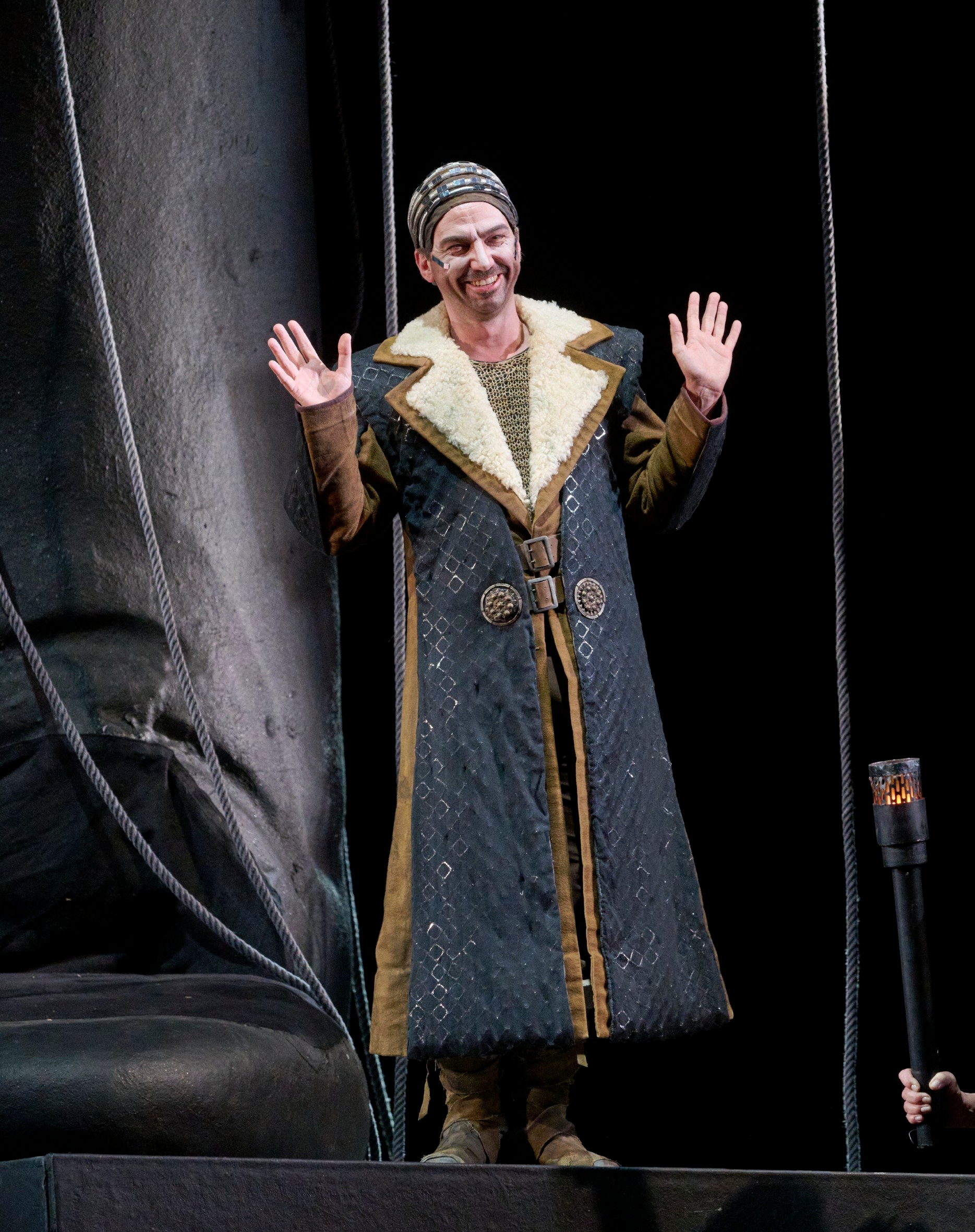
During Agamemnon's absence in the battle for Troy, Clytemnestra binds herself to Aegisth. When Agagmemnon returns home, Clytemnestra and Aegisth hypocritically give him a joyful welcome. In the bath, they slay the defenceless man with an axe. After the murder of her father, Elektra has managed to get her young brother Orest to safety. She herself has only one thought: to avenge the murder.
Electra has renounced society and, above all, Aegisth and Clytemnestra and lives alone, chained in thought to Agamemnon.
She unwaveringly nurtures her hatred, counting on Orest's return as an avenger. The five maids, guarded by the overseer, comment on Elektra's behavior: spiteful, boastful, fearful; only the youngest stands up for Elektra and is chastised for it. Electra conjures Agamemnon and becomes intoxicated by her visions of blood. Chrysothemis interrupts Elektra's monologue and warns her sister that Aegisth and Clytemnestra are planning to imprison her in a tower.
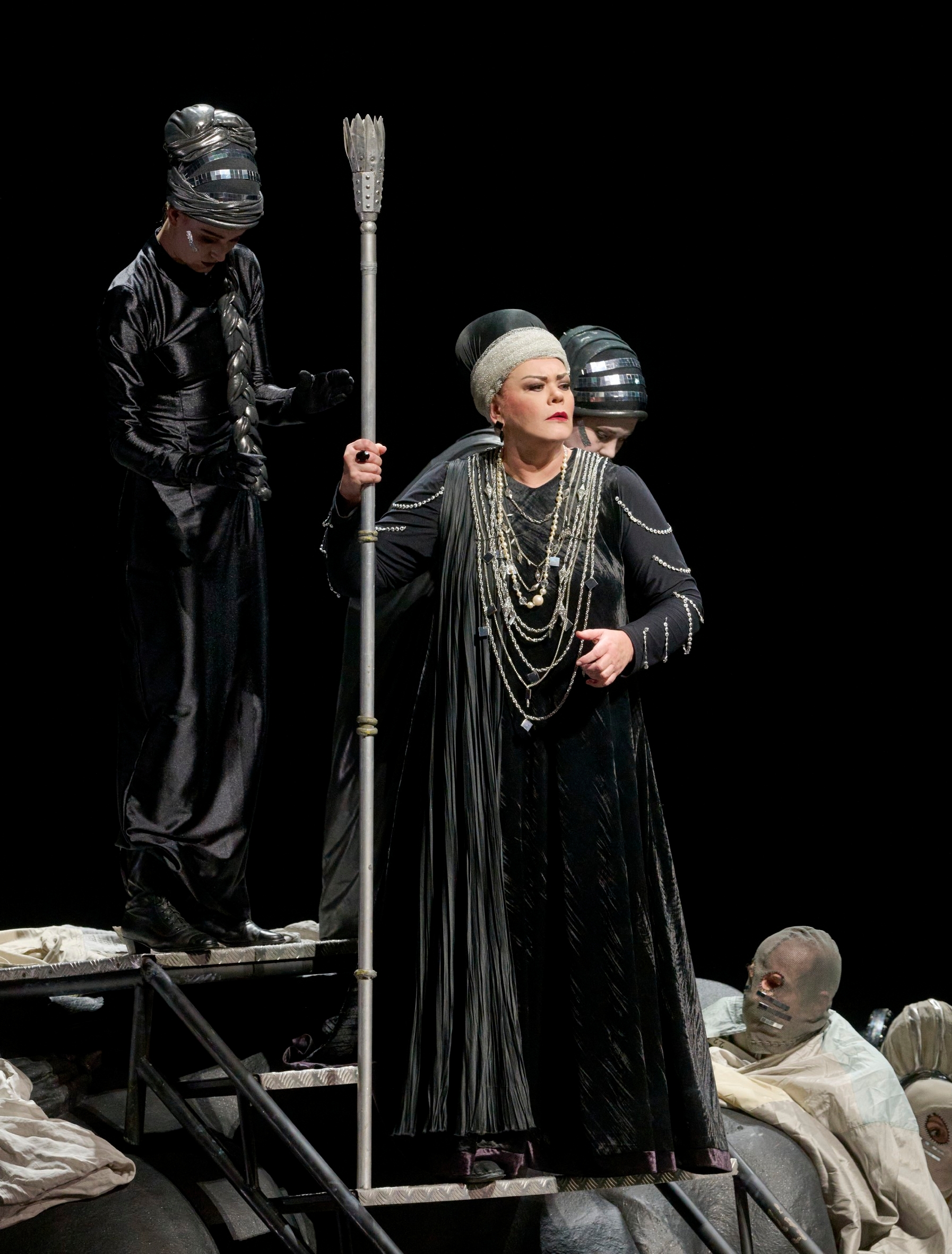
When Chrysothemis hints at wanting to come to terms with the powerful in order to realize her desire for motherhood, she is scornfully put in her place by Electra. The restless Clytemnestra, tormented by memories and anxious dreams, seeks a discussion with Electra and hopes that she will tell her which blood sacrifices and customs will bring her relief. Elektra answers her in a stalling, enigmatic, cryptic manner and frightens her mother by asking about Orest.
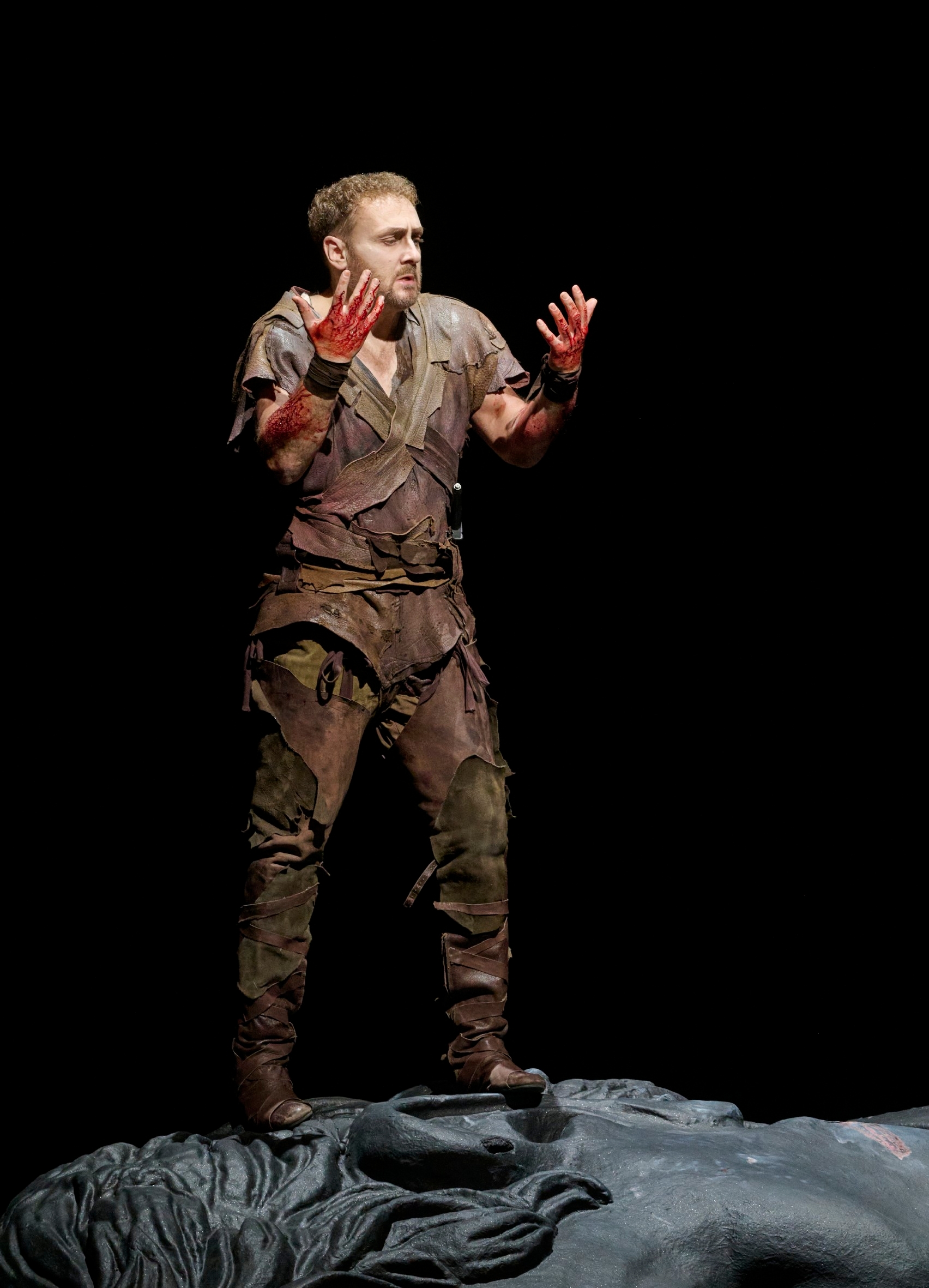
However, when Clytemnestra receives news from her confidante, her horror gives way to an obvious sense of triumph. Electra is irritated until she learns the content of Chrysothemis' message - their brother Orest is dead. Electra refuses to accept this, but then has to believe the messenger's report and decides to carry out the revenge herself. Chrysothemis is to help her. With tenderness and signs of affection, Electra tries to win her younger sister over to her plan to murder Clytemnestra and Aegisth. But Chrysothemis eludes her sister - and is cursed by her.
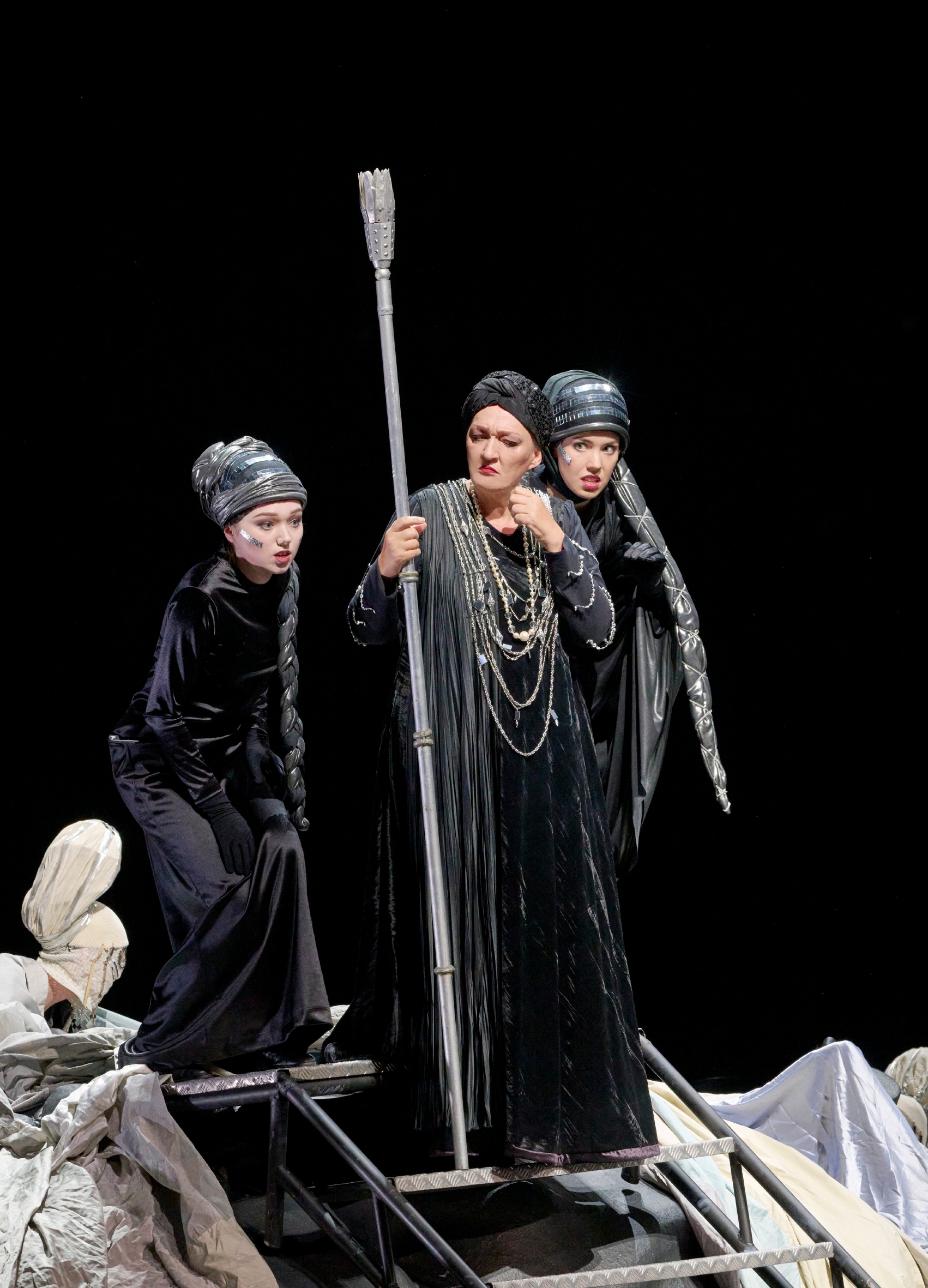
Electra is now determined to carry out the deed alone. But a stranger arrives, pretending to be a messenger, to inform Clytemnestra of Orest's death. Elektra's despair prompts him to ask for her name. Only then does he reveal himself to be her brother - Orest! Electra urges him to take revenge, which Orest hastily vows to carry out. Left alone, Electra waits for the rest ... Clytemnestra's death cries and the confusion of the maids give her the certainty that part of the revenge has been carried out. Aegisth, summoned by servants, wants to hear the news of Orest's death himself. Electra flatteringly leads him to where she knows the avenger will kill him shortly afterwards. Filled with revenge that has finally been carried out, Electra begins a final ecstatic dance ..
Harry Kupfer's legendary production is also not about an ancient story, but about a confrontation with violence and counter-violence, power and manipulation, oppression. In the shadow of the mighty statue of Agamemnon, Kupfer tells the story of all dictatorships - and their consequences.
Anyone who has seen the production once will never forget it: The huge, half-destroyed statue of the murdered Agamemnon dominates the stage, with a globe under its foot. Threatening, frightening, omnipresent. All the characters in the opera tug at it, can't get away, can't free themselves. What Harry Kupfer shows is not just an ancient story about murder and revenge, it is about violence and counter-violence, about power and manipulation, about oppression. In the shadow of the statue, he tells the story of all dictatorships and their consequences; it is an indictment and a rebellion. And, as in all his works, he places the human being at the center in a multi-layered way: Elektra is both victim and avenger, manipulative, lonely, destructive and angry. Not a character template, but a psychologically prepared study.
From the very first moment, the music threatens, seethes and rages: in Elektra, premiered in 1909, Richard Strauss retold the ancient family story for his time. He wanted to contrast the "demonic, ecstatic Greekness" with a smoothed, classical view of history and push the musical power of intensification to the extreme - he went to the limits of the time in terms of harmony and polyphony. The starting point for his work was Hugo von Hofmannsthal's Elektra drama, which Max Reinhardt staged in Berlin with the fascinating actress Gertrud Eysoldt in the title role.
Influenced by the great psychological designs and studies of his time - Sigmund Freud and Josef Breuer - Hofmannsthal created a modern, psychologically motivated work that allows an introspective view of the protagonists. It is not the great mechanics of fate that drive the characters, but rather their emotional feelings, traumas and identity ruptures.
